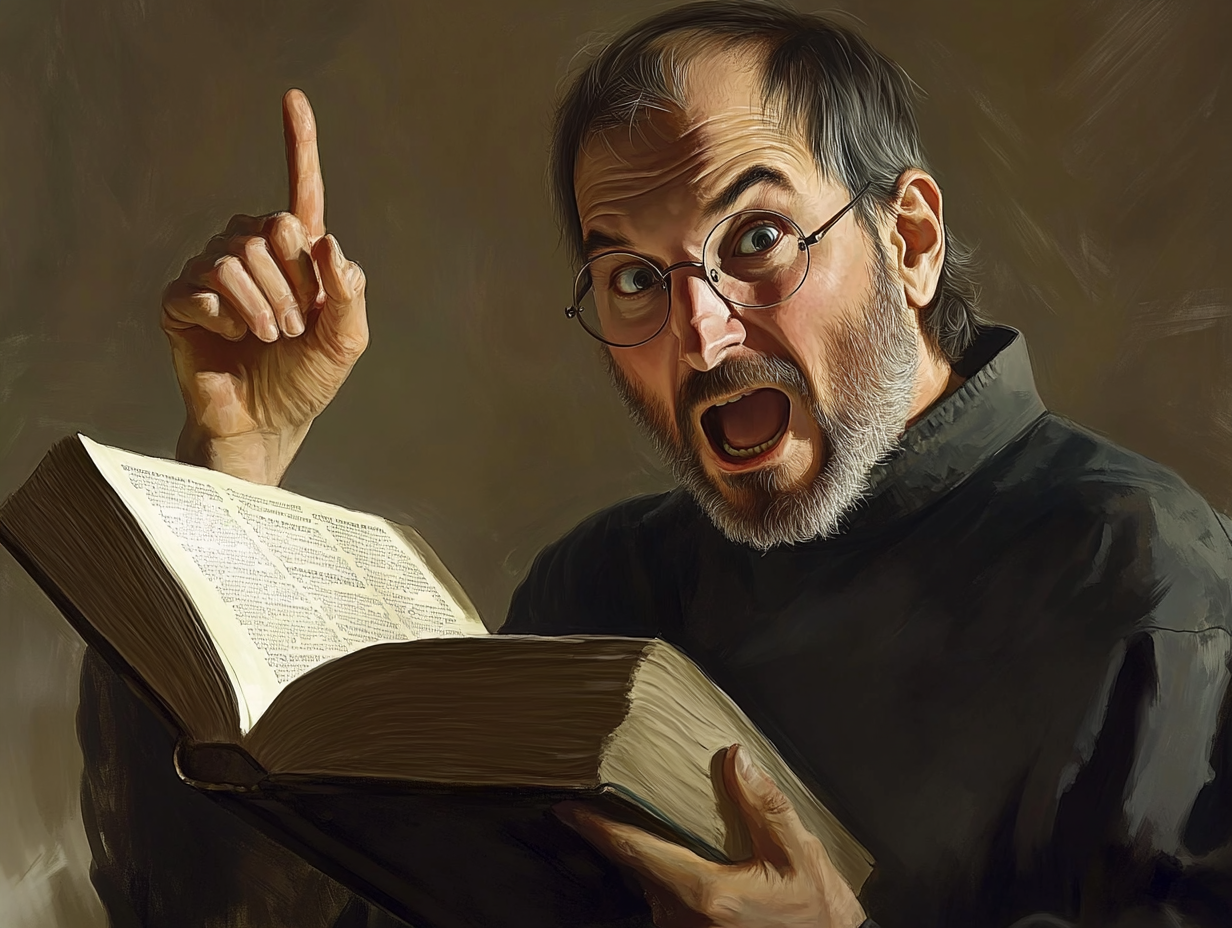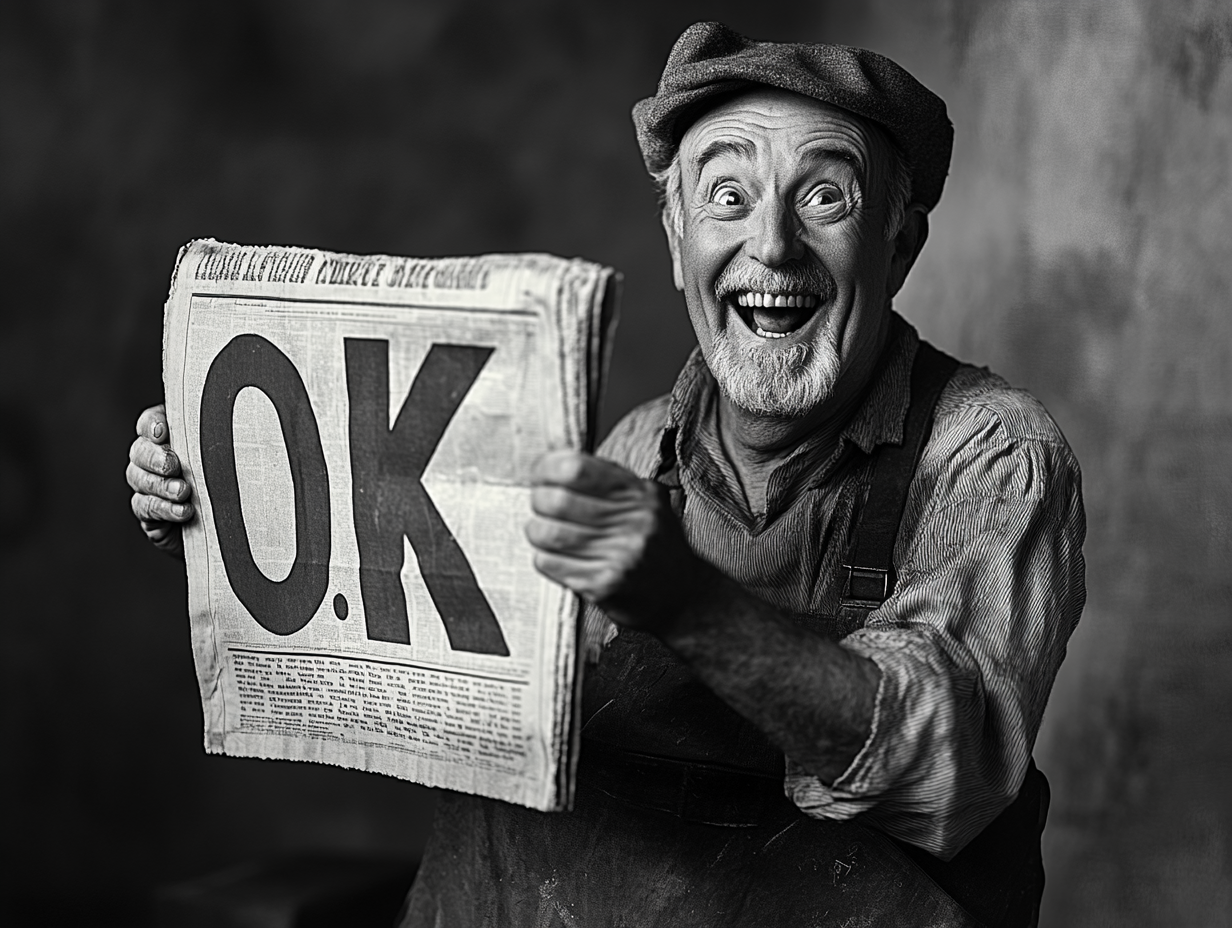From "Insanely Great to "InsanelyOK"
It's January 24th, 1984, and Apple Computer will introduce the Macintosh. Steve Jobs stands on stage wearing a suit and bow tie (for those in the audience expecting a puppet show, they will soon be disappointed). Like many future product reveals (where Jobs would open with products hidden in various containers such as pockets or envelopes) he walks over to a table and pulls a small, beige box out of a nondescript yet completely obvious bag that looks like a square pizza delivery bag. He places the strange box on the table and grins his trademark mischevious grin. The audience cheers (not at his mad scientist grin). He then pulls a floppy disk out of his coat pocket (like reverse magic) and powers on the Macintosh.
The song "Chariots of Fire" begins playing over the speakers as the lights in the theater are dimmed to darkness (don’t worry, this is before creeps in dark theaters were well-known). The only thing you can see is a blue screen with the word "Macintosh" sliding across it right to left in big, bold font. The Macintosh soon boots up with the classic logo at the top, and a handwritten animation reveals the words "insanely great!" (in Jobs' classic lowercase style).
A Macintosh sitting next to a nondescript pizza delivery bag. Unsplash
The 1984 Macintosh event was the first time, of many, that Jobs—and by extension, Apple—would use the words "insanely great" to describe a product. In an interview with 60 Minutes, current (as of this writing) CEO Tim Cook told host Charlie Rose that Jobs "was a relentless driving force for perfection." "He would say good isn't good enough; it has to be great. As Jobs used to say, insanely great."

That time Jobs used a dictionary to find the right word.
So why the word "great"? Why not "excellent" (Bill and Ted's Excellent Adventure had not yet been released; so the word excellent was not part of our vernacular until 1989) Why not "wonderful" or "amazing"? Rumor has it that before that 1984 reveal event, Jobs would go around saying, "Hey, this thing you/we are making has an intensity that is considerably above the average." But because he was not yet the king of beautiful simplicity (hence the suit and bow tie rather than his trademark black turtleneck, jeans and sneakers), he struggled to find the right, succinct words to describe his satisfaction with his team's work. So he went to a dictionary and spent days and nights looking for a single word that would describe "an intensity that is considerably above average." Seven letters in, he found the word "great." (OK, maybe that last part was complete fiction. Or maybe it wasn’t...)
Let's switch gears, hop into our DeLorean, and go back in time to 1839, Boston, Mass. (not the hospital, although I hear great things). There was a little newspaper called the Boston Morning Post, and in the March 23rd edition, there was a satirical article about a rival newspaper by Charles Gordon Greene. Word on the streets (or at least the rough and tumble Wikipedia Blvd.) was that this was the first time the word "OK" was published. It meant "oll korrect," a popular misspelling of "all correct." As the years passed and acronyms became big (like 1980's hair or 1990's JNCO jean bottoms), the word "OK" became a synonym for approval, agreement, and a sign of indifference. It also became a hit hand gesture, a popular emoji, and a way of being dismissive of someone’s opinions.

A very excited guy with a wondering eye holding a newspaper.
“Great” might convey the peak of achievement, but let’s be real—OK has stood the test of time because it’s simple, relatable, and refreshingly honest. In a world obsessed with perfection, “insanely OK” is almost revolutionary in its humility. It acknowledges that life—and all the things we do in it—doesn’t always need to be top-tier to be valuable. Sometimes, average is the sweet spot, like a middle seat with no elbow fights.
OK doesn’t ask for applause; it’s just there, quietly holding its ground since 1839, leaving “great” for those ambitious days but proving we can get plenty done by just showing up. At the end of the day, there’s an art to embracing “insanely OK.” It lets us focus on what matters without pretending we’re reinventing the wheel every time. And for this blog, that’s more than enough.
Other things to read:
- The Macintosh was the first commercially available personal computer that featured a graphical user interface (GUI for the nerds) and was a mass-market success.
- 1984 also saw classic movies like Ghostbusters and Indiana Jones and the Temple of Doom released in theaters.
- In 1984 Nike was busy working on the shoe that would become the Air Jordans, they would release the next year.
- 1984 was also the year Reagan won the presidential election by a landslide (and some debate would go on to ruin the future for all mankind).
- Boston seemingly started the abbreviation fad in 1839, also using expressions like OFM "our first men," NG "no go," SP "small potatoes," and "MTGT" for "man, that's good tea."
